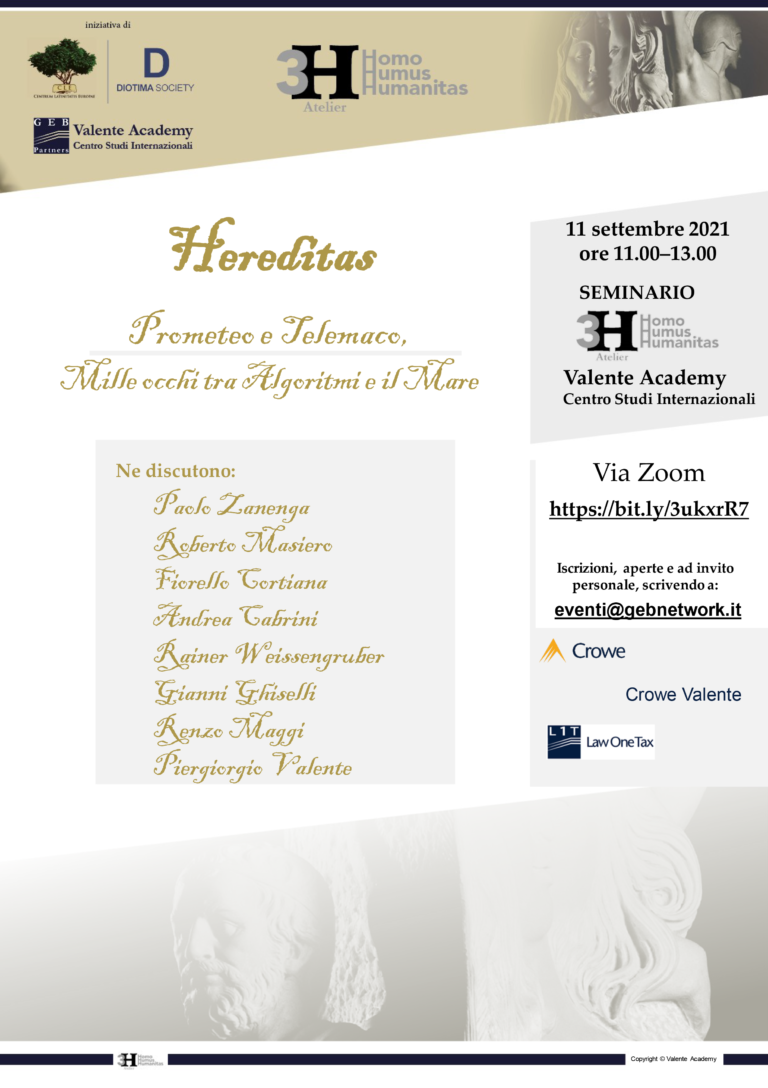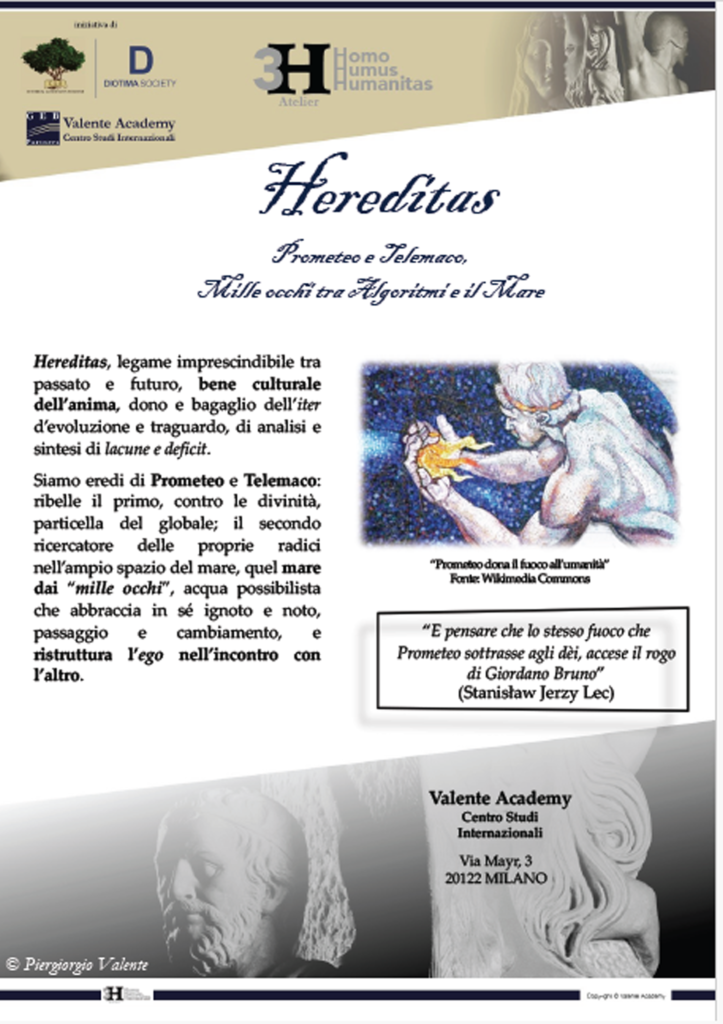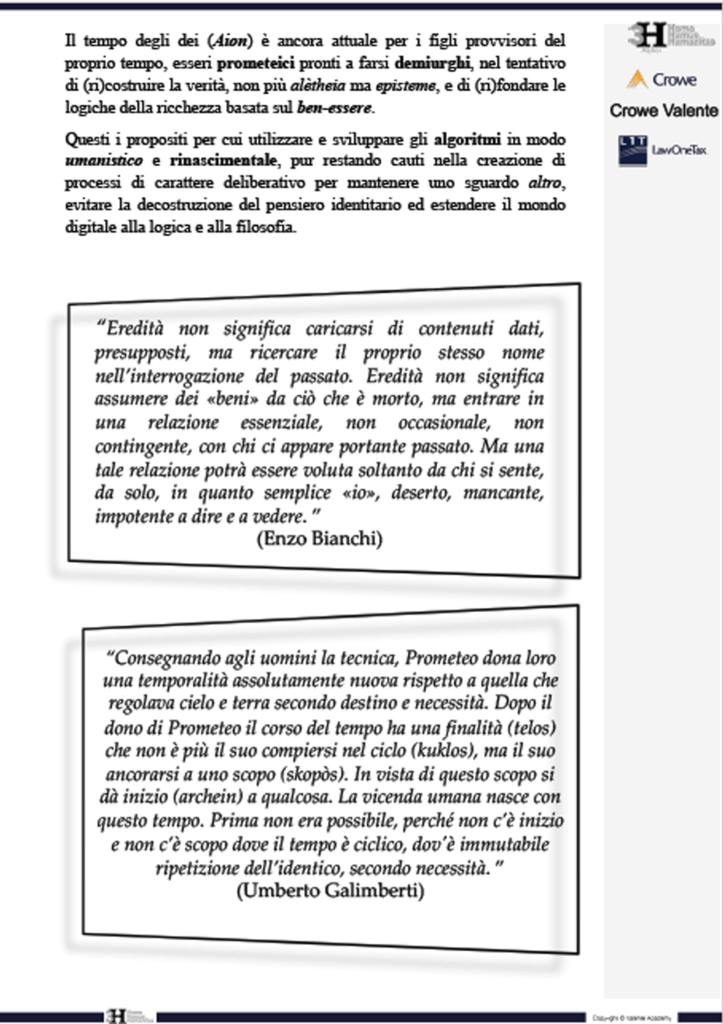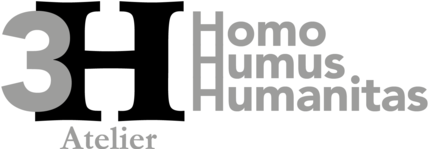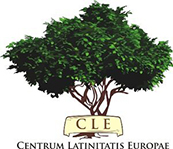- 11 July 2021
HEREDITAS – A Bridge Between Past and Future
The concept of Hereditas, understood as a bridge between past and future, represents not only tangible cultural heritage but also a deeper dimension residing in the collective consciousness as a cultural and spiritual legacy. Hereditas encapsulates the traces of past civilizations, the values, and moral questions passed down through the centuries, serving as a gift, a path of evolution, and a synthesis of limitations and achievements.
Prometheus and Telemachus: Symbols of Rebellion and the Search for Roots
Two emblematic mythological figures illustrate the essence of Hereditas: Prometheus and Telemachus. Prometheus, the rebel who defies the gods, symbolizes the universal and innovative force seeking to redefine reality, bringing with it the spark of knowledge and change. Telemachus, in contrast, embodies the personal search for roots: he ventures into the boundless sea—a “sea of a thousand eyes”—encompassing both the known and the unknown, offering passage and transformation. For Telemachus, the sea represents an encounter with the other and with himself, providing an opportunity to reconnect with origins and reshape personal identity.
Time and Knowledge: Between Aion and Episteme
The concept of time, represented by deities like Aion, remains significant for modern humanity, the “provisional offspring” of its era. Like Prometheus, humanity seeks to become a demiurge, (re)constructing truth. However, in the contemporary age, truth is no longer alétheia—unveiling—but episteme, systematic and verifiable knowledge. In this context, the goal is to redefine values, striving for wealth that is not merely material but focused on well-being.
Fostering a Humanistic and Renaissance-Oriented AI
These principles inspire an innovative approach to developing artificial intelligence: one that views humanity through a humanistic and Renaissance lens. Designing algorithms that reflect these values means leveraging technology to enhance knowledge and well-being while avoiding a purely utilitarian perspective. A critical outlook is essential, fostering deliberative processes that preserve the complexity of human identity and cultural traditions.
In this perspective, Hereditas becomes the foundation for a digital world guided not only by logic and efficiency but also by philosophy and the integrity of identity.
